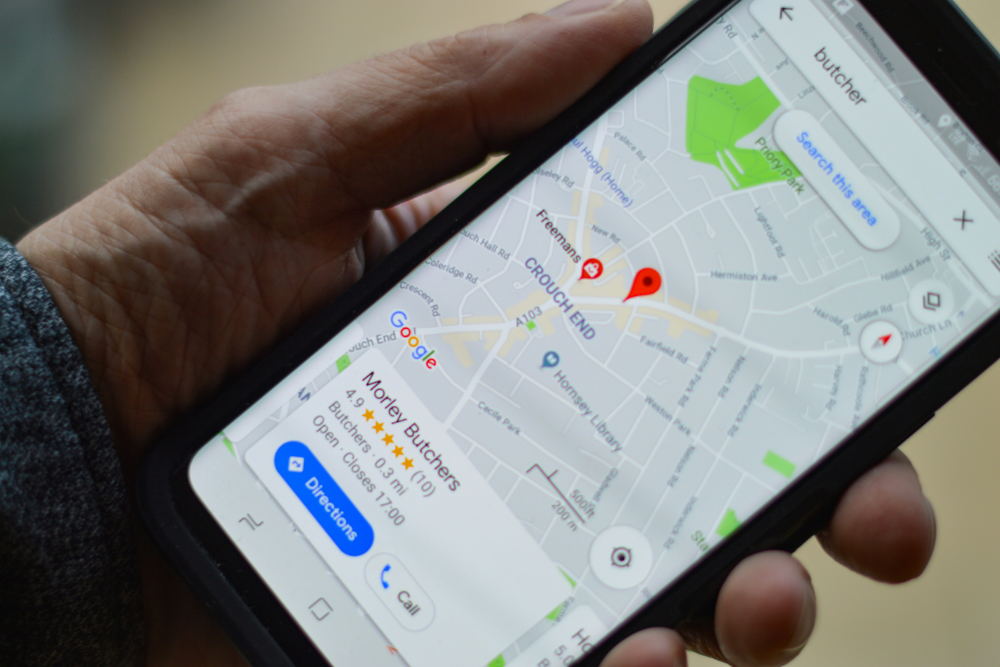
Hungry for More Customers? Get Noticed with SEO for Restaurants!
Let’s face it – in today’s fast-paced world, when people are hungry, the first thing they do is pull out their phones and search for a place to eat. Think about the last time you decided to try a new restaurant. Did you Google it? Did you scroll through reviews or check out photos of the food? We’ve all been there. And that’s exactly what your potential customers are doing too.
Today, more than ever, diners turn to the internet to research restaurants before making dining decisions. Over 90% of them conduct online searches, which highlights the pressing need for restaurants to maintain a solid online presence. If your restaurant isn’t showing up when people are searching for a “great Italian restaurant” or a “restaurant near me,” you’re missing out on diners before they even get to your front door.
That’s why SEO (search engine optimisation) is so important for restaurants. It’s not just a fancy marketing term; it’s the difference between your tables being full or staying empty. So, how do you make sure your restaurant appears in search engine results? Let’s explore how SEO for restaurants works and dig into some practical restaurant SEO tips to help your business get noticed and, more importantly, chosen by hungry customers.
Table of Contents
What is Restaurant SEO?
Restaurant SEO is the process of optimising your restaurant’s website and online presence so that it ranks higher on search engines like Google. The goal is simple: when potential customers search for phrases like “best Italian restaurant” or “cosy café in [city],” you want your restaurant to appear at the top of the search results. This includes a combination of tactics like using relevant keywords, creating high-quality content, ensuring your site loads quickly, and optimising for mobile devices.
At its core, restaurant SEO helps your business stand out in a crowded digital space, bringing in more online visibility and, ultimately, more diners. Given that so many people search for places to eat online, having strong SEO can be the difference between someone choosing your restaurant or your competitors’.
Why Do Restaurants Need SEO?
SEO involves optimising your restaurant’s website to increase its visibility on search engines like Google. When people search for things like “best Italian restaurant near me” or “restaurants in your area,” you want to make sure your restaurant appears high in the search results. If your restaurant isn’t visible on that first page of Google, there’s a good chance you’re being overlooked.
For restaurants like yours, local SEO is especially important. Think about it: when people are looking for a place to eat, they want something nearby. That’s where local search comes in. Local SEO ensures that when someone searches for a “restaurant near” them, your business shows up as an option. The higher your ranking, the more likely it is that customers will click on your link, check out your menu, and make a reservation.
Benefits of Local SEO for Restaurants
The benefits of local SEO for restaurants are endless, and it’s not just about getting more clicks on your restaurant website. Here are a few key ways SEO can help make your restaurant stand out:
1. Increased Online Visibility
When people search for places to eat, you want your restaurant to be at the top of the list. With strong SEO, your restaurant will have a better chance of appearing in those crucial top spots on search engine results.
2. Targeted Traffic to Your Website
3. Better User Experience
SEO isn’t just about getting people to your site; it’s also about keeping them there. A well-optimised site that’s easy to navigate, loads quickly, and looks great on mobile will keep visitors engaged and more likely to book a table or place an online ordering.
4. Increased Foot Traffic and Sales
A strong local SEO strategy will drive more customers not just to your restaurant’s website but also to your actual front door. The more visible you are in local searches, the more likely diners are to walk in and give your place a try.
5. Improved Credibility and Trust
Key Elements of SEO for Restaurants
So, how do you get started with SEO for your restaurant? It all starts with a solid strategy and a few core components. Let’s break it down into easy steps:
1. Optimise Your Restaurant’s Website
Your restaurant’s website is the foundation of your online presence. It’s often the first impression potential customers will have of your business, so it needs to be in tip-top shape. A well-optimised website should be:
- Fast-loading and mobile-friendly. Most people will be searching on their phones, so your site needs to look great and load quickly on mobile.
- Easy to navigate. Make sure your menu, location, contact details, and hours are all easy to find. Don’t forget a clear call to action, whether it’s a “Book Now” button or a link to your online ordering system.
For on-page SEO, focus on using relevant keywords throughout your site. For instance, if you run an Italian casual dining restaurant, use phrases like “best Italian casual dining restaurant in [your city]” or “authentic Italian casual dining in [location]” across your pages. These keywords tell search engines what your site is all about and help your local restaurant appear in the right searches.
2. Focus on Local SEO
If you want your restaurant to rank higher in local searches, you need to focus on local SEO. Here’s how to boost your visibility in local search results:
- Google My Business: Make sure you claim and fully complete your Google My Business profile. Add your address, phone number, website, hours, and even photos. This profile is essential for showing up in local searches, especially the “map pack” that shows the top three restaurants near the searcher’s location.
- Local Keywords: Use location-specific keywords across your website content. For example, if you own a Mexican restaurant in Bristol, include terms like “best Mexican restaurant in Bristol” on key pages of your site.
- Encourage Reviews: Ask happy customers to leave reviews on Google, Yelp, and TripAdvisor. Positive reviews not only help you rank higher but also increase trust with potential diners.
3. Use the Right Keywords
When it comes to SEO, choosing the right keywords is everything. These are the phrases that potential customers are typing into search engines when they’re looking for a place to eat. To get started with keyword research:
- Identify what makes your restaurant unique. Think about what your customers are searching for. Are you a great spot for brunch? Family-friendly? Vegan options? Whatever it is, those terms should be part of your SEO strategy.
- Use keyword research tools like Google Keyword Planner to find the most popular search terms related to your business.
- Use a mix of broad and specific restaurant terms. While broad terms like “best restaurant” can bring in traffic, more specific terms like “best seafood restaurant in London” are more likely to attract local customers.
4. Build Quality Backlinks
Backlinks, or links from other websites to yours, are a key factor in boosting your restaurant’s SEO. When other credible websites link to your site, it tells search engines that your restaurant is trustworthy and reputable.
- Get your restaurant listed on restaurant review sites like Yelp and TripAdvisor. These sites often link to your website, which helps improve your ranking.
- Partner with food bloggers and influencers to review your restaurant or feature it in a local food guide.
5. Keep an Eye on Technical SEO
Technical SEO refers to the behind-the-scenes elements of your site that help search engines understand and rank it properly. Things like having a clean website structure, fast page load times, and proper tags all contribute to better SEO performance. Make sure you’re following SEO best practices to keep your site running smoothly and ranking higher.
Restaurant SEO Tips to Help You Succeed
Here are a few restaurants SEO tips to help your business stand out:
- Show Off Your Best Photos: Food is a visual experience, and diners love looking at photos before they decide where to eat. High-quality images on your website can not only entice customers but also help your restaurant show up in image searches.
- Monitor Your SEO Performance: Use tools like Google Analytics to see how your website is performing. Track your traffic, which keywords are working, and what’s bringing in the most customers.
- Keep Your Content Fresh: Regularly update your website with new information, such as seasonal menus, special events, or blog posts. SEO loves fresh content, and so do your customers.
Don’t Miss Out on SEO – The Time to Act is Now
Imagine this: a potential diner is sitting just a few streets away, hungry and ready to find a new place to eat. They pull out their phone, search for a “cosy seafood restaurants nearby,” or “classic family restaurants nearby,” and guess what? Your competitor shows up in the top search results, not you.
That’s the power of SEO, and if you’re not investing in it, you’re missing out on countless opportunities. SEO can help get your restaurant in front of people who are actively looking for places to dine, whether it’s for a casual lunch or a special dinner.
The truth is, you can’t afford to wait. Every day that you’re not optimising your website, your competitors are getting those clicks, reservations, and foot traffic. SEO services for local restaurants is no longer optional; it’s essential. Don’t let your competitors steal the spotlight – start building your best local restaurant SEO strategy now, so you’re the one they choose when hunger strikes.
If you’re unsure where to begin or need help optimising your restaurant’s website, contact us today. We’re here to help you improve your online visibility, drive more traffic, and make sure your restaurant stays competitive in this fast-moving digital world. Let’s work together to get your restaurant seen by the customers who are searching for it!
